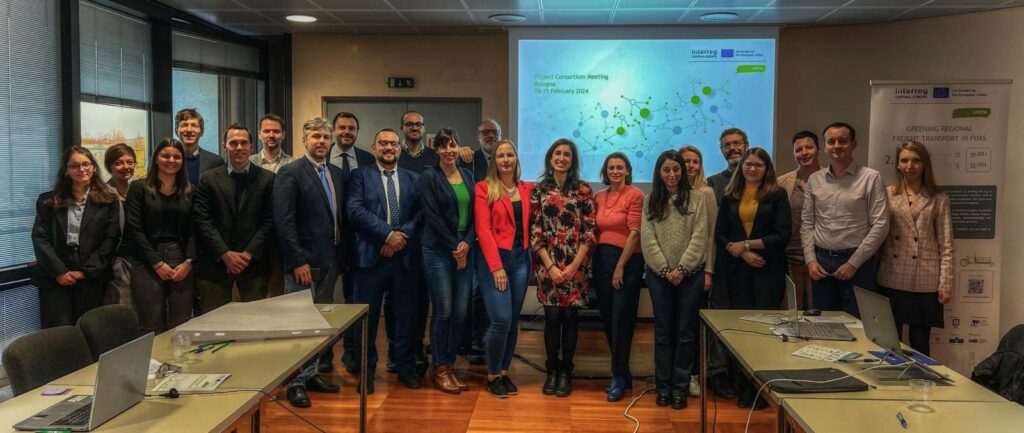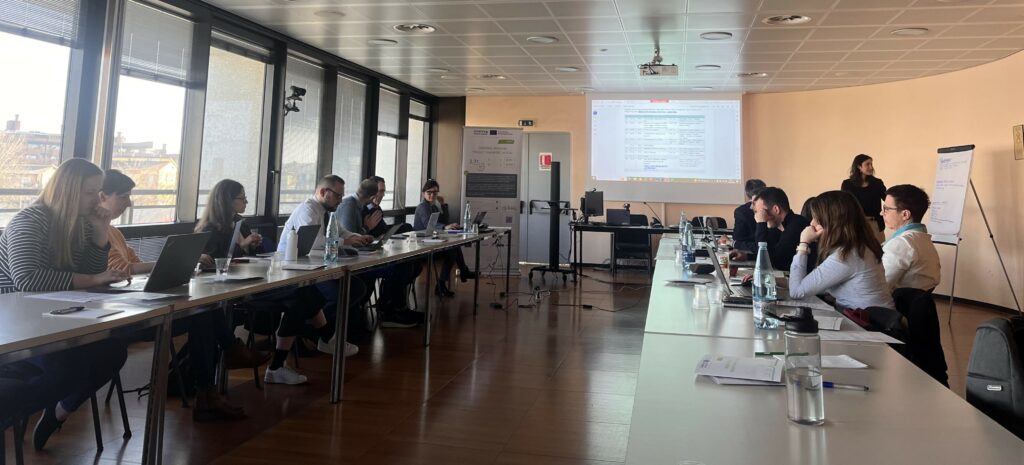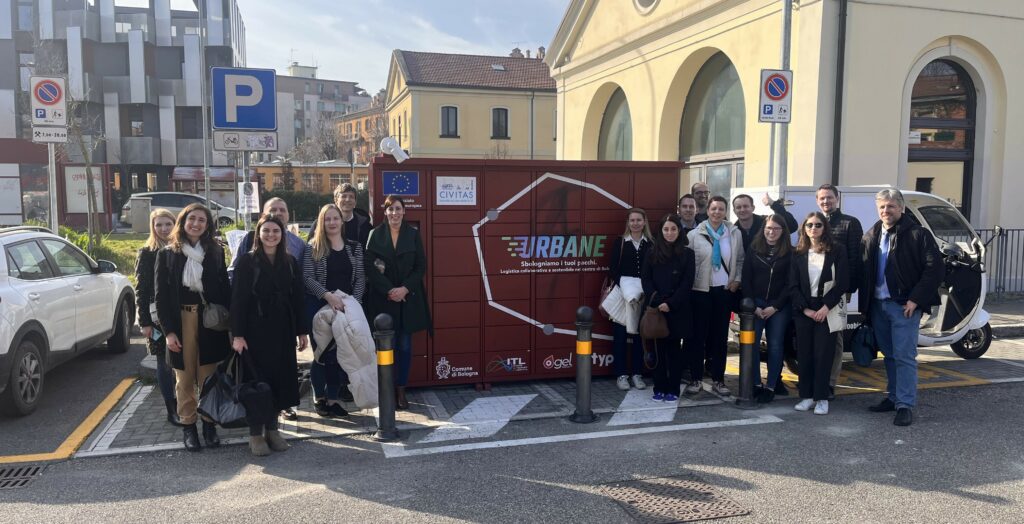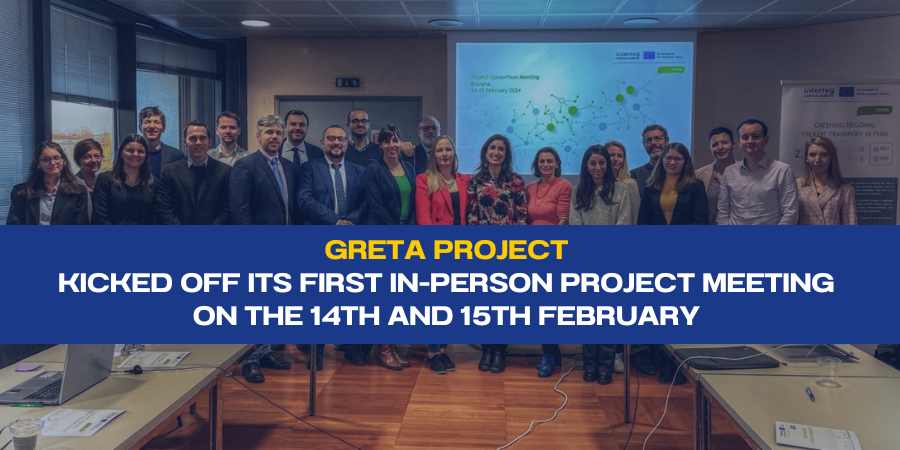GRETA Project kicked off its first in-person project meeting on the 14th and 15th February, organized by ITL – Institute for Transport and Logistics Foundation in Bologna. After months of virtual collaboration, it was a joy to finally meet each other in person, fostering stronger relationships and creating a solid foundation for future cooperation.

The event marked a significant milestone in the journey towards greening urban logistics in functional urban areas: the meeting gathered partners from across Central Europe to discuss the project’s future activities and milestones to be achieved, as well as to joint strategies for transforming last-mile deliveries into sustainable and environmentally friendly solutions.
Throughout the two-day event, participants engaged in productive discussions, peer review sessions, and interactive workshops. At the heart of the meeting was a sparkling exchange of ideas, collaboration, and strategic planning.

The highlight of the agenda was a visit to an innovative urban logistics solution implemented within the URBANE Project. This hands-on experience showcased cutting-edge lockers and sustainable last mile deliveries right in the heart of Bologna’s city center. It was a tangible demonstration of the transformative power of our collective efforts and a demonstration to the synergies we are strongly building with other EU-funded projects.

The OPEN ENLoCC team, a proud partner of the project, was of course also present at the meeting. Many thanks to the collegues of ITL for hosting us!
GRETA in a nutshell
The GRETA (Green, Reliable, and Eco-friendly Transport Alternatives) project has a clear and ambitious vision: to eliminate the negative impacts of last-mile delivery in CE FUAs. This includes addressing issues such as emissions, noise pollution, and traffic congestion. By 2030, GRETA aims to create cities that are not only sustainable, but also highly livable and accessible to all. The project seeks to achieve this through the use of zero-emission vehicles and cargo bikes, as well as the reorganization of urban spaces through effective curb management.
To test and implement these solutions, GRETA is conducting pilot actions in several cities, including Maribor, Reggio Emilia, Verona, Poznan, and Budapest, with Berlin FUA as an observer. These pilot actions have the potential to be quickly deployed alongside existing measures, making them a flexible and adaptive approach to urban transformation.
For more information on the project: www.openenlocc.net/greta/
